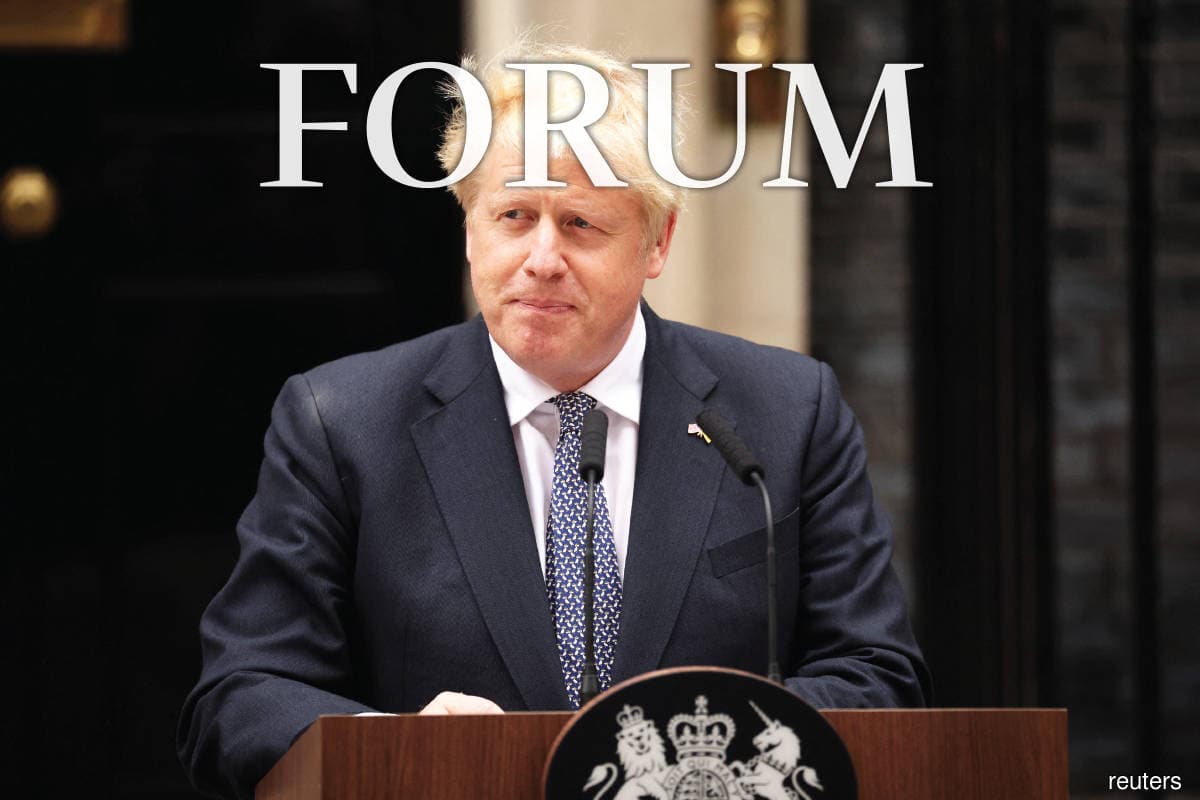
This article first appeared in Forum, The Edge Malaysia Weekly on July 11, 2022 - July 17, 2022
"To those who cling to power by corruption and deceit and the silencing of dissent, know that you are on the wrong side of history, but that we will extend a hand if you are willing to unclench your fist.” — Barack H Obama, (1961–present), 44th president of the United States of America
Authority and power permeate our political, social and economic life but, unfortunately, empirical knowledge about the motivational origins and consequences of power and authority is limited, and that is just sad. Why? Because authority and power are the very fabric that holds communities together.
There has been no dearth of high-octane examples of the dark and insidious relationship between authority, power and corruption.
Let us begin with a primer: Contrary to popular belief, power does not corrupt; I believe it only heightens our pre-existing ethical tendencies. The factors that motivate us through life typically form subconsciously during our tender years and these natural tendencies go on to energise and steer us. They set us up for patterns of long-term behaviour.
This could well have been the reason behind Boris Johnson’s desperate attempt to fight against his removal as prime minister of the UK. The verdant fields of Eton College, which the young Boris grew up on, are full of examples of alumni and former British prime ministers who stayed beyond the public welcome.
Poor Boris’ ill-advised effort is a clear example of how power intoxicates, and how it seduces the incumbent to stay for at least one more day.
For us business leaders, there is a deep need to better understand how power sometimes corrupts and how to avoid it. It is important to gain a better understanding of the motivations and biases that drive us all.
Corruption often hovers around power like an invisible force field, and history is replete with examples that show how difficult it is to resist the pull to the dark side.
Our present courtrooms are filled with “powerful” public figures hemming and hawing their way through trials, lying through their teeth and insulting our intelligence, trying to cover their abuses of power that are so blatant and unabashed that it surprises even the most seasoned.
The proverb, “Absolute power corrupts absolutely”, is supposed to mean that whenever a person has power over other people or things, it makes him or her corrupt. It morally destroys their nature and fills them with destructive pride.
This famous sentence is attributed to the well known English historian and moralist Lord Acton of Aldenham, who expressed this opinion in a letter written to Archbishop Mandell Creighton in 1887. The original statements go thus: “Power tends to corrupt, and absolute power corrupts absolutely. Great men are almost always bad men.” However, it has since been discovered that Lord Acton was not the primary originator of this quotation.
In fact, the primary originator is an English politician, William Pitt the Elder, Earl of Chatham, and former prime minister of England from 1766-1778. He was stated to have said in parliament that “Unlimited power is apt to corrupt the minds of those who possess it”, which is closest to the phrase, “absolute power corrupts absolutely”.
Most high-fliers in the political and corporate world are intelligent, accomplished individuals who have toiled hard to reach where they are. But the sad truth remains that the highly educated and informed often choose not to tamper with the power equations at all, fearing a backlash from their constituents.
With the advent of social media and the spurt in growth of alternate knowledge centres, it has become imperative to nip power corruption in the bud or else it can blow up quickly and cause irreparable damage to reputation.
This is true not just in the case of organisations, but individuals too, as reputation and online identity have become vital ingredients in the recipe for success in today’s world.
While multiple checks and balances are built into the system to educate and even penalise those going against the code of conduct, the number of cases of wilful violation has only gone up. So, how does enlightened leadership help employees grab the reins of power and stay on the straight path, even if they sometimes find themselves steering in the wrong direction?
I believe self-awareness is the key and it is crucial to understand the unconscious drivers behind our behaviours. But perhaps more important is helping folk develop greater control over their impulses, which will prevent incorrect decisions due to unconscious biases and the lure of the dark side.
In the words of famed American jurist James F Byrnes, “Power intoxicates men. When a man is intoxicated by alcohol, he can recover, but when he is intoxicated by power, he seldom recovers.”
Zakie Shariff is executive chairman of Kiarafics Sdn Bhd, a strategy consulting group. He is also an adjunct professor at the Faculty of Industrial Management, Universiti Malaysia Pahang.
Save by subscribing to us for your print and/or digital copy.
P/S: The Edge is also available on Apple's AppStore and Androids' Google Play.